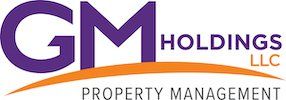5 Steps To Prepare Your Home For Winter
We’re about a month into the thick of winter, so chances are you’ve had plenty to time to acclimate yourself and your house or apartment to the frigid, omnipresent cold. But on the change that you’ve just moved into your new place or bought a new property, we want you to be properly prepared to sufficiently maintain it through any winter.
As we move into the colder months, it’s all the more important to ensure that your home is ready to brave the elements, especially with our erratic Philadelphia weather. Here’s what you should do.
Temperature
Depending on varying factors like maintenance and condition, the average lifespan of a heating and air system can last anywhere from 10-20 years. Ideally, you would be able to find out more info on your unit’s heating system from the realtor or prior owner/renter of the property.
Depending on the frequency of use, you should service your HVAC system on an annual or biennial basis. Autumn (before the cold moves in) is typically the best time to clean your heating pump. If you want to make sure it gets done right, the Philly area has plenty of reliable HVAC service companies . If you’d rather put in some elbow grease instead, a heating pump can be maintained with a vacuum or damp cloth to rid dust from the removed filter, and outdoor units can easily be rid of debris with a good hose.
Even if you don’t have an HVAC manual copy on hand, most common manuals and errors can be found easily online . If you intend on replacing your own HVAC parts though, try to stick to OEM (original manufacturer parts) rather than third-party parts, as using them could risk voiding your HVAC warranty.
Hold Up The Exterior
Brick, concrete, and fiber cement siding pieces are typically more robust and low-maintenance than vinyl or plastics, but that doesn’t make any of exempt to being weathered by the elements. Plastic polymer siding can easily brittle through the winter cold if you aren’t careful, so if you’re planning on a new piece installation, save it for the warmer months. Mason siding is porous and vulnerable to water damage too, whether via crumbling or freezing into cracks, so always have some occasional concrete sealer applied to be safe. Do the same for any wood exterior as well.
Test Your Detectors
Believe it or not, winter is actually the time when most house fires occur, per the U.S. Fire Association . It’s not prime grilling or firework season by any stretch, but more insulated artificial heat could make for more fire hazards. Older properties are more at risk, especially in the dry winter air, but regardless, an annual electrician inspection can go a long way to make sure nothing is awry.
If you haven’t already, invest in reliable smoke detectors with reliable batteries, and throw some change at a carbon monoxide detector as well. CO poisoning is an odorless, colorless, and even stealthier threat than house fires, but fortunately, an HVAC inspection will fix the faulty heater venting that’s so often responsible for it. Another common cause is wood-burning appliances, but that’s all the more reason for an alarm and a good chimney sweep.
If you suspect a dangerous CO leak, please move to a safe location and call your local fire department immediately.
Cover Outdoor Furniture
No matter how much hard earned cash you shelled out on it, Mother Nature doesn’t care about the lavish aesthetics of your back patio. Invest in a sturdy cloth cover, treat in the washing machine as needed, and do so on a warmer day so the cover won’t insulate moisture.
Clear The Pipes
If you aren’t careful, winter can turn from a time of cheer to a time of frozen, broken pipes and frustration. If you have any, make an effort to climb up and those gutters on a warmer day; neglecting them can create enough water damage to deteriorate the exterior, foundation, and even basement of the property. Shut off the sprinkler system if you have one and always leave your outdoor faucet off and empty until spring.
Even though it’s not crucial to drain every drop out of your outdoor faucet line, burst pipes can be especially expensive and problematic maintenance hassles, so try to get as much water out as you can. Simply cut off the valve to the spigot supply and run the remaining water out. Finally, unless you have a reliable fuel stabilizer ready, drain any gas from lawn care supplies (lawnmowers, weed trimmers, etc.) so it won’t go bad over winter storage.





